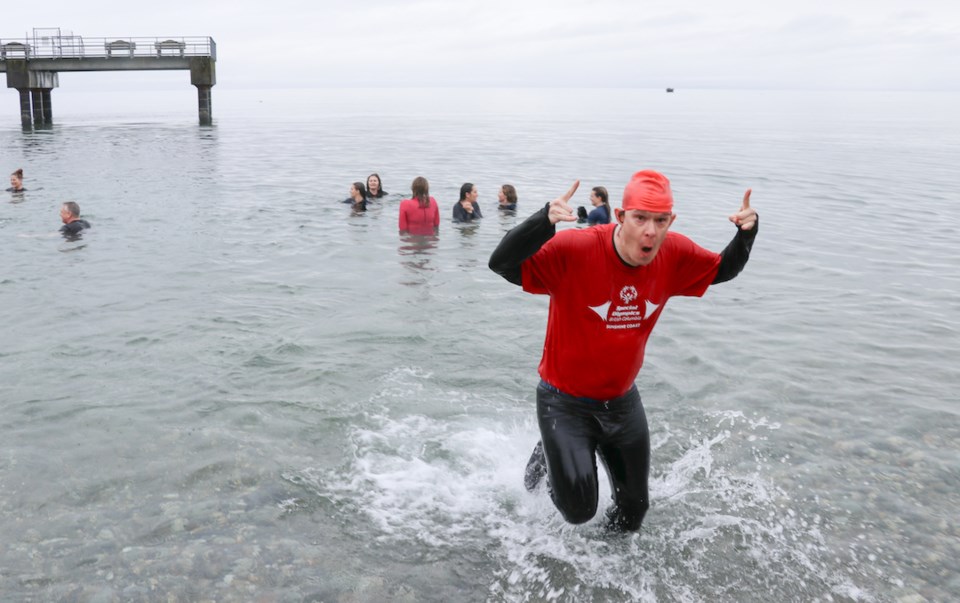Hi, my name is Micheal Oswald. I’m 42 and I live with the diagnosis known commonly as FASD, or fetal alcohol spectrum disorder. I’m one of the four per cent of Canadians –– one of 1.5 million –– more than all those with autism, cerebral palsy, and down syndrome combined.
You may be wondering why this condition is so prevalent. Some possibilities include social inequalities, lack of education, lack of counselling and poverty. These can lead to the disease of alcoholism. However, it is not only a problem associated with low income or inequality and not only with the addiction of alcoholism.
The saying is, “no safe time, no safe amount.” Often, even social drinking, before parents, no matter what their life circumstances, even know they are pregnant or are unaware of the dangers, can affect fetal development.
It is estimated that 98 per cent of individuals with FASD are undiagnosed or misdiagnosed in Canada.
Now this can be from a number of factors. In more affluent parts of society, the question of alcohol use during pregnancy has often not even been posed possibly because of the stigma attached to FASD. Lack of education or awareness in the public and in the medical field can have the same result. It can be called, ADHD, Aspergers and learning disabilities among others. Sometimes this can mean not enough of the right kind of support is made available for individuals who may have different needs.
I was lucky. I was eventually assessed at Sunny Hill Health Centre in BC Children’s Hospital between the ages of 10 and 12. During that assessment, I was tested for balance, coordination, sensitivity to sensory stimulation and other issues.
Even with a diagnosis, I wasn’t helped much by the educational system in those days. As a child and teen, the resources needed to facilitate my education were simply not available. Apart from a very few of the most special and understanding teachers, for the most part, I suffered bullying, was ostracized and ended up dropping out twice in my high school years.
Around that time, as a coping mechanism, I took up the habit of my birth parents and began drinking and using substances. I left my adoptive home and those who had loved and cared for me since I was six, thinking I was invincible and all I needed was drugs and alcohol to manage my life.
What it brought instead, was a decade of mental health issues, addiction and run-ins with the law.
Eventually, at age 26, I began to realize that my life was going nowhere and if I didn’t change, I’d most likely end up dead or incarcerated. I was already a statistic by birth, and I would have preferred not to become one by circumstance.
I returned home that New Year’s Day with new resolve – to become sober, make up for lost time with my family, and make a living for myself. With the help of family, friends and a small army of professionals, I joined Special Olympics, self-published two books, became gainfully employed in several jobs, and carved out a slice of life for myself.
In other words, I found the ABILITIES within my DIS-Abilities and from there, I found the need to continue spreading awareness of the effects of alcohol on innocents.
I see alcohol served almost everywhere I go, from restaurants, to art galleries, to liquor stores that open at 9 a.m. I may be biased but I’m not sure I see the need for alcohol before noon but I do understand the power of addiction. The stranglehold it can take on a life is insidious, and despite all the evidence, alcohol is still readily available, whilst counselling for its victims, help for its prisoners and care for those it has hurt is not. One challenge, is the absence of self-identified people with FASD in the public eye and in the media. The stigma associated with this reality needs to be removed if we are to make progress.
The 2024 theme of FASD Awareness Month is “Everyone plays a part.”
What can you, as a member of our community do to support people with FASD and support healthy pregnancies? First, educate yourselves and second, recognize the need to include. Have a chat with a friend or a neighbour who may be expecting; take steps to advocate for FASD rights in your community at all levels of government; maybe even take a course on fetal alcohol spectrum disorder. If you’re a business owner, you might want to employ a person with FASD, and find out how fortunate that decision was that you made.
September is FASD Awareness Month and FASD Awareness Day is Sept. 9 in honour of the nine months of pregnancy. It’s also known as Red Shoe Day. You may see me this month wearing red, my favourite colour. I encourage all who read this article and sympathize, to Rock some Red in solidarity all September long.



